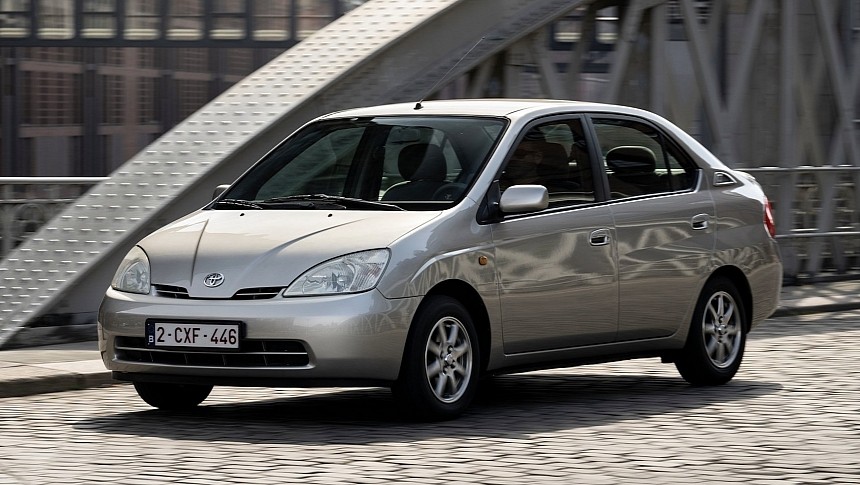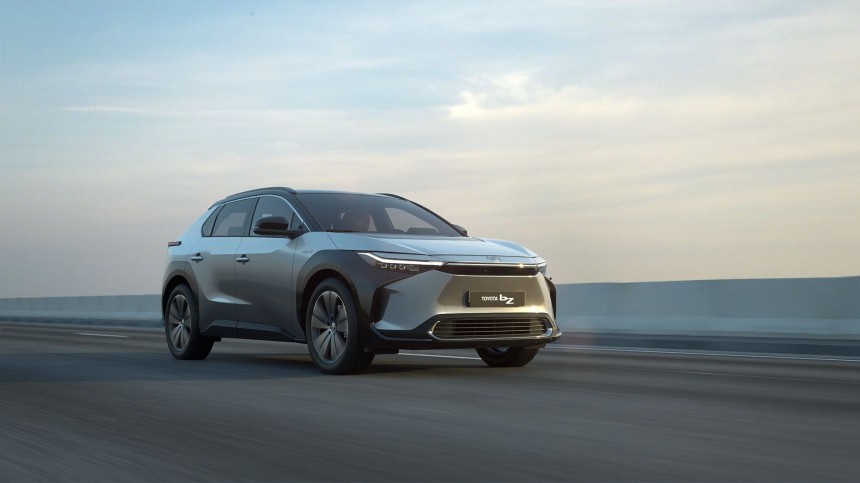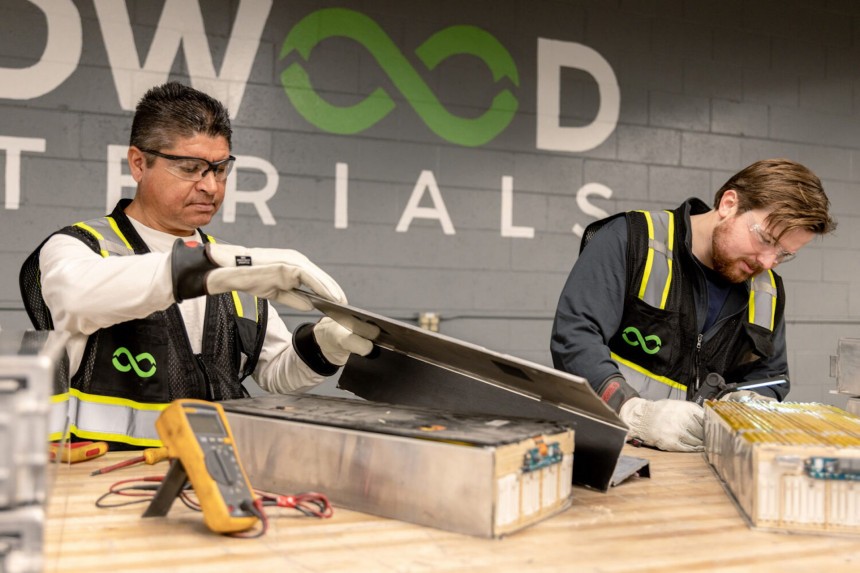The first-generation Toyota Prius was the first mass-produced hybrid car back in the 1990s when it was launched. But more than three decades have passed since then. Now, Toyota has come up with a solution to use the batteries of the first-gen Prius.
The Japanese car giant is expanding its partnership with Redwood Materials, announced last year, to receive recycled anode and cathode supplies for the US production of hybrids and EVs.
Toyota debuted the Prius back in 1997 and kept the production of the first generation running until 2003. By now, those cars must have ended up in compactors, scrapyards, or still on the road, if they got lucky with an owner who cared for them properly. However, recycling their batteries has always been an issue.
Now, Toyota has come up with a solution for the batteries that powered the early hybrids. They will get a new lease on life in the upcoming generation of electric and hybrid cars.
Right now, the bZ4X is the carmaker's first mass-produced electric car and, currently, the only EV in its lineup. The 'bZ' in the name stands for 'beyond Zero' and will be included in the names of all upcoming Toyota electric vehicles.
A small crossover will be next, followed by a sedan and a large SUV, all with zero tailpipe emissions. A sports car is also part of the plan. The Japanese aim to achieve global sales of 3.5 million BEVs per year by 2030.
Toyota supplies the recycling company with end-of-life battery-powered cars. From now on, the carmaker will also supply Cathode Active Material (CAM) and Anode copper foil.
Part of the recycled material will return to Toyota’s lineup of hybrids as it will be supplied to its future automotive battery production center in North Carolina. The center in which Toyota invested nearly $14 billion should start operating sometime in 2025. Toyota is targeting carbon neutrality for its cars by 2050.
The move will reduce production costs and localize the North America chain supply and it will also make the Toyota models eligible for tax credits in the United States.
Redwood is also making a major investment to upgrade its facilities and will expand its Northern Nevada facility. Furthermore, a second Battery Materials Campus will start production later this year outside Charleston, South Carolina.
Both centers will recycle, refine, and manufacture battery materials, targeting a production of components of 100 GWh per year. The materials supplied by Redwood will include a minimum of 20 percent recycled nickel, 20 percent recycled lithium, and 50 percent recycled cobalt.
Toyota debuted the Prius back in 1997 and kept the production of the first generation running until 2003. By now, those cars must have ended up in compactors, scrapyards, or still on the road, if they got lucky with an owner who cared for them properly. However, recycling their batteries has always been an issue.
Now, Toyota has come up with a solution for the batteries that powered the early hybrids. They will get a new lease on life in the upcoming generation of electric and hybrid cars.
Right now, the bZ4X is the carmaker's first mass-produced electric car and, currently, the only EV in its lineup. The 'bZ' in the name stands for 'beyond Zero' and will be included in the names of all upcoming Toyota electric vehicles.
Toyota supplies the recycling company with end-of-life battery-powered cars. From now on, the carmaker will also supply Cathode Active Material (CAM) and Anode copper foil.
Around five million batteries are to be recycled
The battery lifecycle ecosystem that Toyota and Nevada-based Redwood are creating should thus target the recycling, re-manufacturing, and repurposing of around five million batteries, which have reached the end of their lives.Part of the recycled material will return to Toyota’s lineup of hybrids as it will be supplied to its future automotive battery production center in North Carolina. The center in which Toyota invested nearly $14 billion should start operating sometime in 2025. Toyota is targeting carbon neutrality for its cars by 2050.
The move will reduce production costs and localize the North America chain supply and it will also make the Toyota models eligible for tax credits in the United States.
Both centers will recycle, refine, and manufacture battery materials, targeting a production of components of 100 GWh per year. The materials supplied by Redwood will include a minimum of 20 percent recycled nickel, 20 percent recycled lithium, and 50 percent recycled cobalt.









